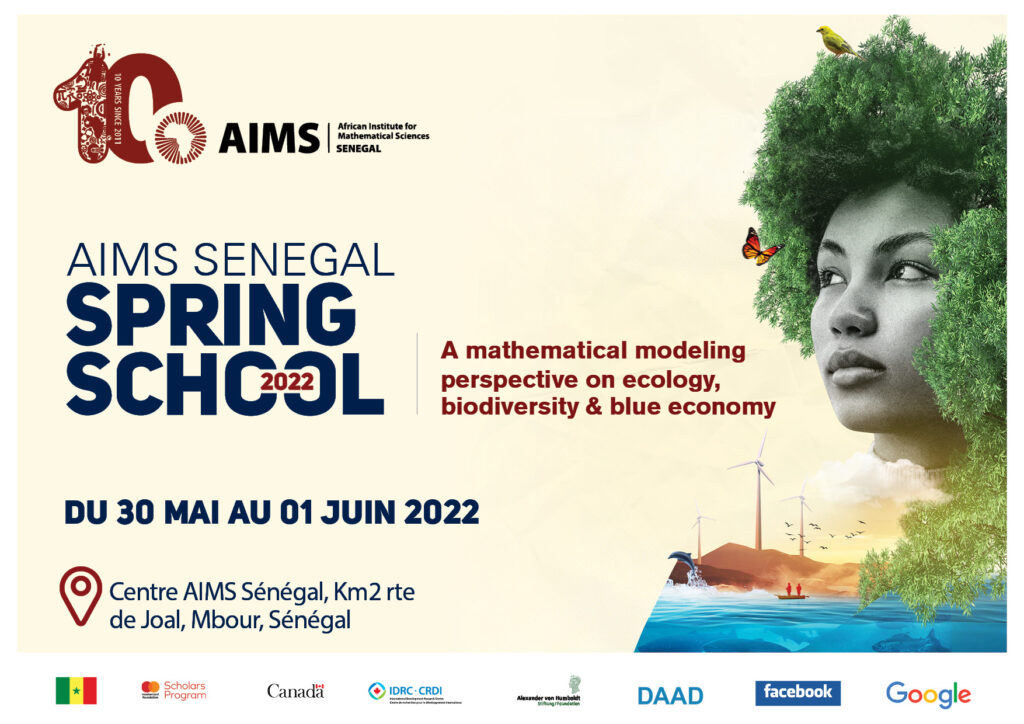Overview
Ecological resources, biodiversity, and blue economy are becoming crucial concepts for the development of sustainable ecosystems and a stable society. Knowledge of these concepts and familiarity with the related computational methods are a growing requirement.
The Spring School will be held at the African Institute for Mathematical Sciences (AIMS) in Senegal and is targeted at enthusiastic MSc and PhD students with a keen interest in applied mathematics, ecological and socioeconomic sciences.
This Spring School will provide an opportunity for enthusiastic students to learn about these topics and the modelling techniques used to address fascinating ecological and socioeconomic problems.
Advanced knowledge in mathematical or numerical disciplines is not required.
The School will cover different topics, including:
• ecological interactions
• blue economy
• biodiversity
• marine resources
• environmental change
What is the Spring School
The School aims at exploring a number of concepts and methods around environmental sustainability and at introducing the concept of blue economy. The lectures will be based on practical examples, which are discussed and analysed using a set of modelling tools, such as differential equations and Agent – Based Modelling. The School will be based on the computer programming language python. The topics include: ecological interactions, biodiversity, climate regulation, environmental sustainability, and blue economy. An overview of the basic principles of mathematical modelling and the python language will smoothly introduce the students into the different topics. The School will be held at the African Institute for Mathematical Sciences (AIMS) in Mbour, Senegal. Prof. Dr Agostino Merico from the Leibniz Centre for Tropical Marine Research (ZMT), Bremen, will lead the learning process.
Organizers:
- Prof. Mouhamed Moustapha Fall (AIMS Senegal)
- Prof. Agostino Merico (ZMT Bremen)

